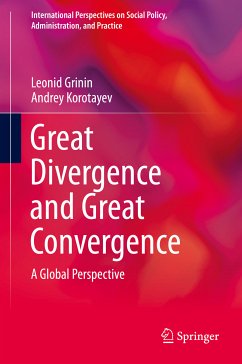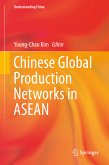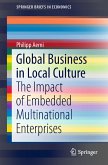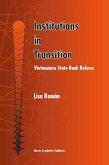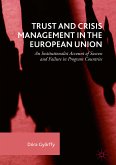This new monograph provides a stimulating new take on hotly contested topics in world modernization and the globalizing economy. It begins by situating what is called the Great Divergence--the social/technological revolution that led European nations to outpace the early dominance of Asia--in historical context over centuries. This is contrasted with an equally powerful Great Convergence, the recent economic and technological expansion taking place in Third World nations and characterized by narrowing inequity among nations. They are seen here as two phases of an inevitable global process, centuries in the making, with the potential for both positive and negative results.
This sophisticated presentation examines:
A work of rare scope, Great Divergence and Great Convergence gives sociologists, global economists, demographers, and global historians a deeper understanding of the broader movement of social and economic history, combined with a long view of history as it is currently being made; it also offers some thrilling forecasts for global development in the forthcoming decades.
This sophisticated presentation examines:
- Why the developing world is growing more rapidly than the developed world.
- How this development began occurring under the Western world's radar.
- How former colonies of major powers grew to drive the world's economy.
- Why so many Western economists have been slow to recognize the Great Convergence.
- The increasing risk of geopolitical instability.
- Why the world is likely to find itself without an absolute leader after the end of the American hegemony
A work of rare scope, Great Divergence and Great Convergence gives sociologists, global economists, demographers, and global historians a deeper understanding of the broader movement of social and economic history, combined with a long view of history as it is currently being made; it also offers some thrilling forecasts for global development in the forthcoming decades.
Dieser Download kann aus rechtlichen Gründen nur mit Rechnungsadresse in A, B, BG, CY, CZ, D, DK, EW, E, FIN, F, GR, HR, H, IRL, I, LT, L, LR, M, NL, PL, P, R, S, SLO, SK ausgeliefert werden.
"This book is recommended to anyone interested in understanding the present state and context of the world system should find Great Divergence and Great Convergence: A Global Perspective a very valuable read and a continual source of insight and information. ... This book will make a valuable contribution to world system analysis in general and the specifics of the Great Divergence and Great Convergence." (Tony Harper, Journal of Economics and Political Economy, Vol. 2 (3), September, 2015)

